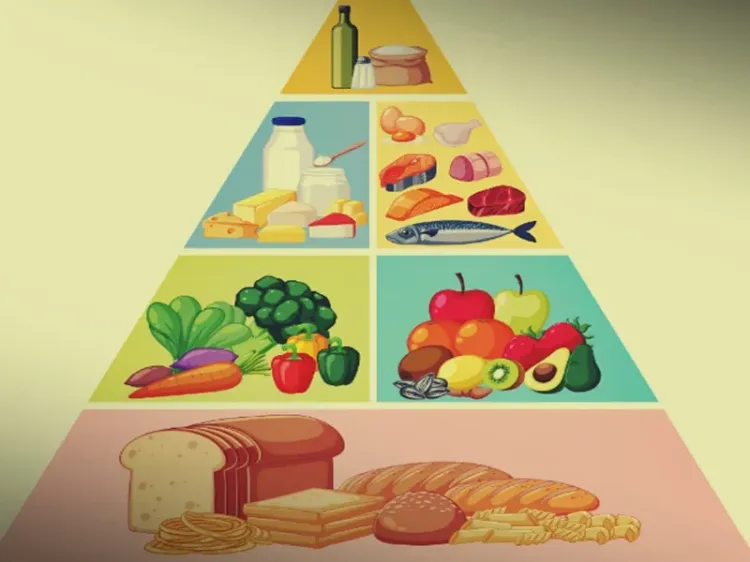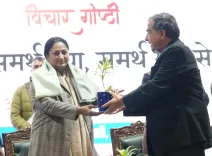Transitioning to Nutritious Diets Essential for Addressing Critical Nutritional Crisis in India: Experts

New Delhi, Jan 12 (NationPress) Transitioning to nutritious diets is essential for addressing the serious nutritional crisis, driven by unhealthy eating habits, in India, as stated by health experts.
The most recent findings from the Indian Council of Medical Research-National Institute of Nutrition (ICMR-NIN) reveal that India is grappling with a health crisis, with 56.4 percent of the overall disease burden linked to poor dietary choices.
Unwholesome eating practices, including the intake of processed foods laden with salt, sugar, and fats, have alarmingly surged, fueled by the rise of fast-food outlets and the easy access to packaged snacks.
"India is encountering a unique and concerning nutritional crisis, with abdominal obesity being more widespread than general obesity. Over 50 percent of the population is affected by diet-related ailments, such as obesity, type 2 diabetes, and fatty liver disease," remarked Dr. Hemalatha R, former director of ICMR-NIN.
Dr. Hemalatha made these comments during a keynote speech at the 30th Continuing Medical Education (CME) seminar recently held by the Physicians Association for Nutrition India (PAN India) in partnership with the Indian Medical Association (IMA) Bengaluru.
Non-Communicable Diseases (NCDs) account for 66 percent of all deaths in the nation. Unlike in the highly developed Western countries, where NCDs typically arise later in life, India is witnessing these conditions at a considerably younger age.
Worryingly, two-thirds of Indians suffering from NCDs are aged between 26 to 59, which are the most productive years of their lives. The primary cause is attributed to poor dietary choices and other unhealthy lifestyle habits.
The ICMR-NIN research indicates that 56 percent of the disease burden is due to unhealthy diets. This trend presents considerable challenges not only to individual health but also to the country’s economic and social structure.
"Unwholesome diets are responsible for over 56 percent of the nation's disease burden, and the repercussions can begin as early as fetal development, as pregnant women consuming processed foods and sugars jeopardize their children's cognitive health," Dr. Hemalatha emphasized.
"This highlights the urgent necessity for a shift towards balanced diets rich in pulses, legumes, whole grains, vegetables, and fruits, in accordance with global guidelines to combat this dire situation of unhealthy eating," the expert added.
Dr. G. Rajendiran, MBBS, MD, DM (Cardiology), Professor & Head of Preventive Cardiology at PSGIMSR, Coimbatore, and Director of the VR Heart Health Initiative, also stressed the significance of a whole food plant-based diet in the prevention and management of cardiovascular diseases. This is crucial given the rising prevalence and mortality rates despite advancements in medical technology, she noted.










